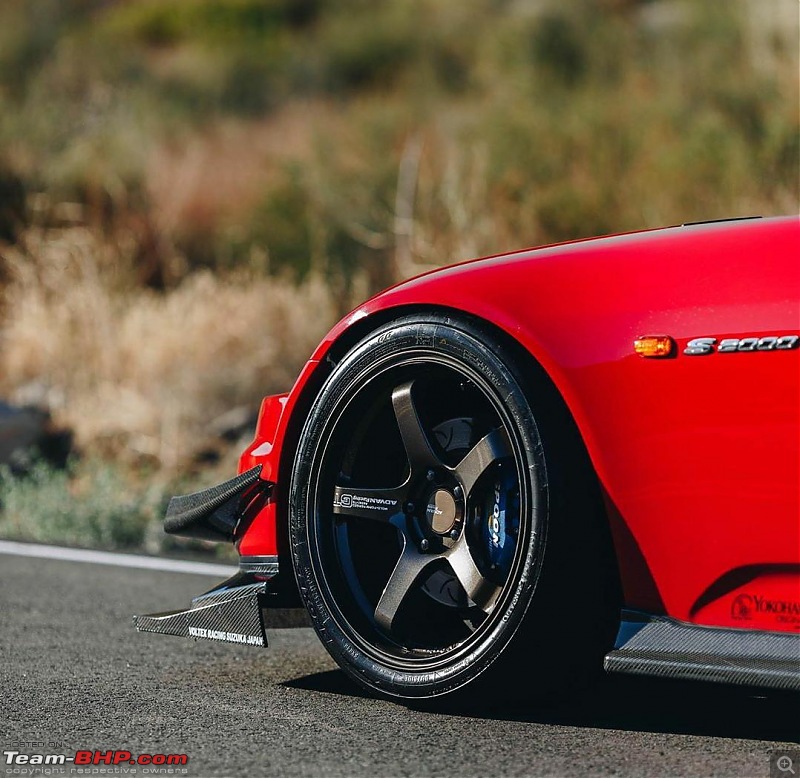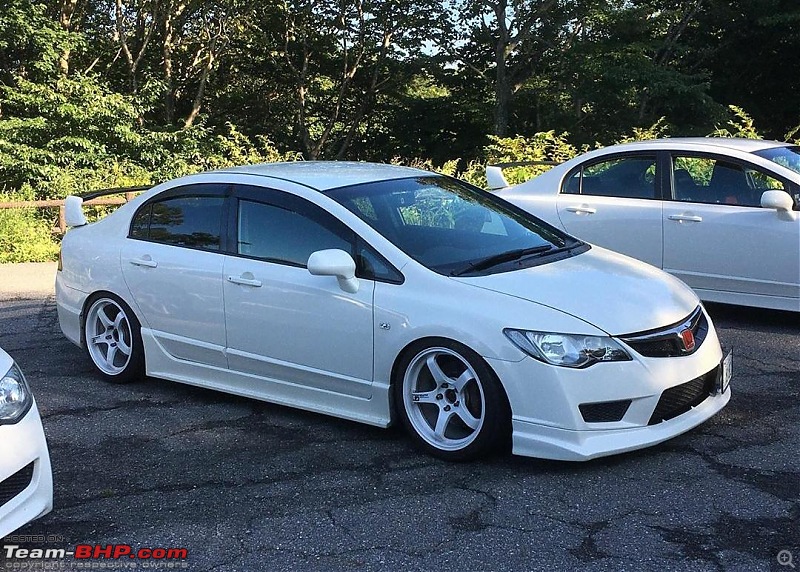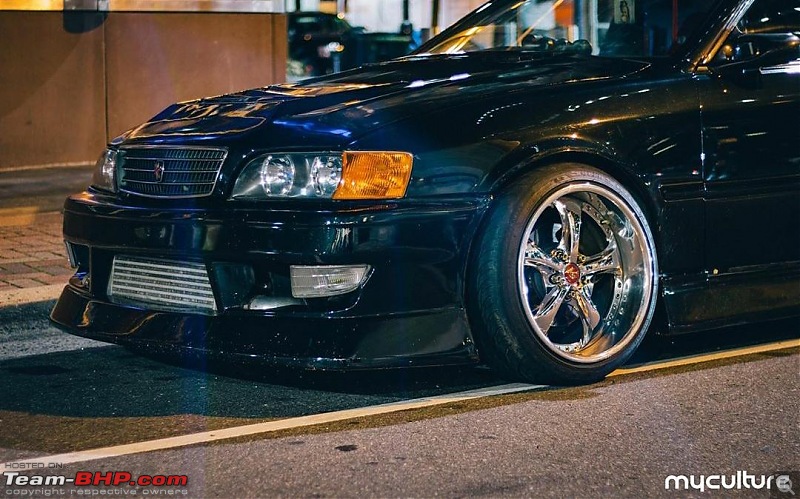Hi all,
As you all know, alloy wheel upgrade is one of the most common car modification that is done nowadays and people mainly look at the style or design of the wheels when looking to upgrade. However, there are many other techical ascpects that needs to be considered when upgrading your alloy wheels!
Below are the topics that you need to know about alloy wheels when upgrading or if you need to check whether your car is having the right wheels:
Alloy Wheel Diameter / Size (15”,16”,17”..)

The first topic is very common and something that everyone knows about which is the alloy wheel diameter. However, when upsizing you need to be cautious and should not upsize to wheels that are too big. With bigger wheels, there is a chance for your wheels hitting suspension or fenders. Also, bigger wheels leads to low profile tyres which is not suitable for indian road conditions.
I would recommend that you stick to manufacture specified tire and alloy wheels sizes. If you own a lower variant of the car and if higher variants come with bigger tires then you can upsize the wheels as it is already tested and approved by the manufacturer. Finally, keep in mind that as you go for bigger sizes, the price of the wheels also increases accordingly.
Rim Width (6j, 7j, 7.5j..)
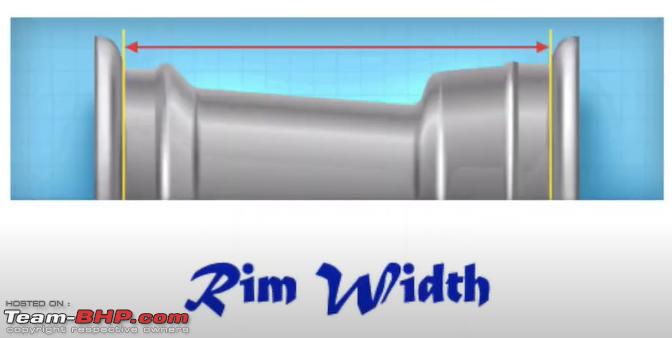
Next topic is about RIM width. There is another number that comes with the alloy wheels for e.g. 17"
7j, 16"
6j etc. This is nothing but the width of the alloy wheels in inches. According to the width of the tires used, the width of the alloy wheels should be chosen and it should ideally stay within the recommended width.
Below is a chart that depicts the same:
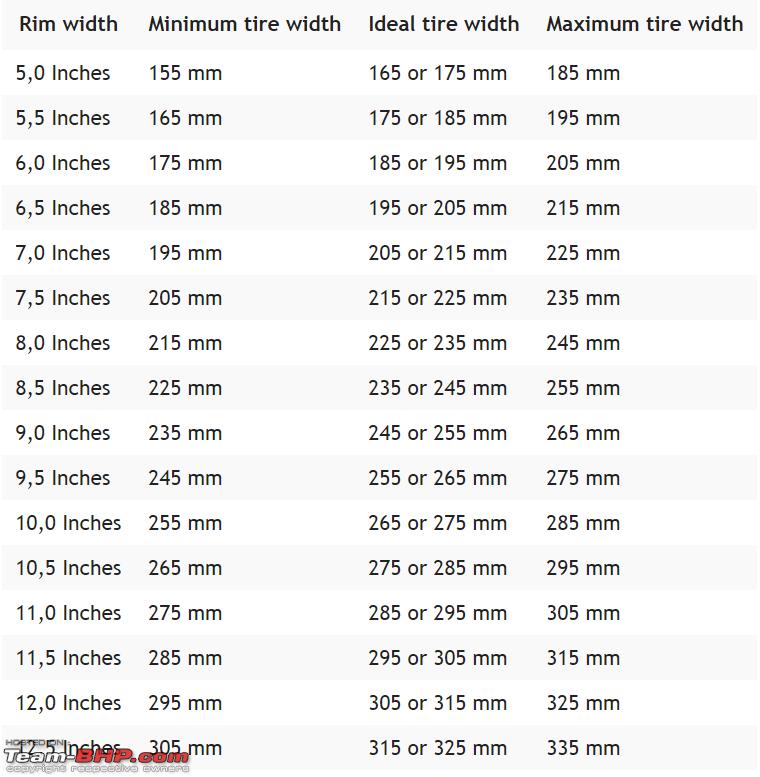
Wheel Offset (ET0, ET35, ET-25..)
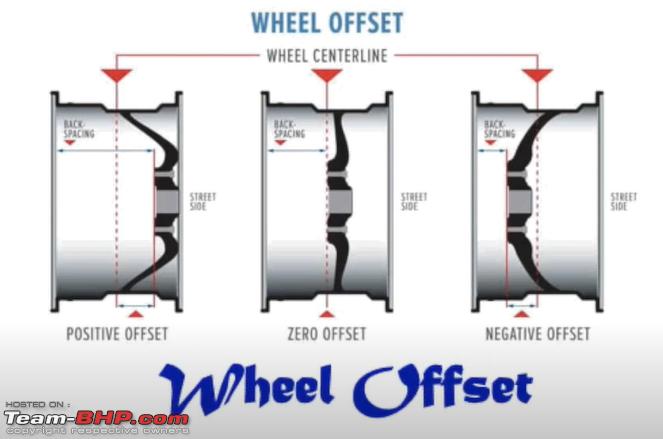
Another topic that is rarely discussed is the Wheel Offset. For e.g. 17" 7j
ET35, 16" 6j
ET0, 18" 7.5j
ET-25. This can be divided into 3 categories: zero offset, positive offset and negative offset. Positive wheel offset is when the hub mounting surface is in front (more toward the street side) of the centerline of the wheel. Zero wheel offset is when the hub mounting surface is in line with the centerline of the wheel. Negative offset is when the hub mounting surface is behind the wheel centerline. “Deep dish” wheels are typically a negative offset. I would recommend to stay within the manufacturer recommended offset value for your wheels. For e.g. my stock wheels come in ET35 and when upgrading I would look at the same offset value or not deviate from it too much.
Bolt Pattern/ Pitch Circle Diameter (4x100, 5x114.3..)
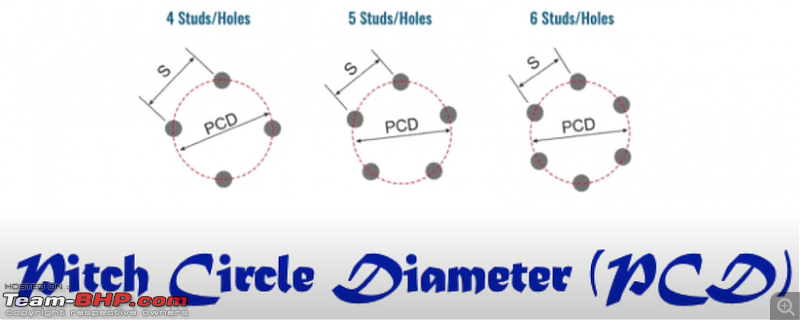
Alloys can have 4, 5, 6 or 8 holes and different measurements which is called the Bolt Pattern. Pitch Circle Diameter (PCD) is the diameter of that circle which passes through the center of all the bolts hole or wheel bolts or wheel rim holes or stud. You don't need to know the technical details on how to measure this because according to our car's model and year, every manufacturer has set a PCD value for the wheels which can be easily checked online. There are wobble bolts available and wheel adapters available to change PCD but it is recommended to go for the exact fitment.
Alloy Wheels Quality (Replica vs Original)

Replica wheels are very common nowadays. Wheel shops cannot be blamed as they sell what's in demand in the market. People look at style and want expensive branded wheels at a cheaper price. Brands like Vossen, Rotiform, BBS etc. are the most copied brands. However, if you check these brand website, you may notice that most of these wheels start at bigger sizes like 17" or 19" but replica wheels are available in the same design for smaller sizes as well. The main issue with these wheels is that we do not know if they meet any safety standards. When you opt for alloy wheels you also need to check if they meet safety standards and certifications like TUV, ISO 9001: 2008/2005, NAD, VIA etc. Eventhough, the replica wheels are cheaper than what they copy from, they are not really cheap. We can get other original branded wheels for the same price or even cheaper.
Country of Origin (India, China, Malaysia, Taiwan, Italy..)

Another factor that decides the quality of the wheels is the country of origin. All countries manufacture good and bad quality wheels but what we are concerned about are the wheels that are usually imported to India. Hence, we can broadly classify the wheel quality based on the country they are manufactured in.
European(German/Italian) and USA > Taiwan > Malaysian > Indian > Chinese
If you are low on budget, Indian brands like Neo Wheels provide budget friendly options and the quality is decent for the price.
Some Taiwanese brands: HRS, Lenso, Inforged, AVA etc.
European brands that are affordable in comparison: Momo Italy and OZ Racing.
Premium brands: TSW, Petrol, Sparco, Rotiform, Vossen, Stance etc.
Another factor that decides the quality of wheels is the manufacturing method. Forged wheels are stronger and lighter than Low Pressure Casted wheels but also very expensive. In my opinion, Low Pressure Casted wheels are good enough unless your purpose is racing. Lower quality wheels are gravity casted which is not recommended.
Bonus Topic: Wheel spacers and Adapters
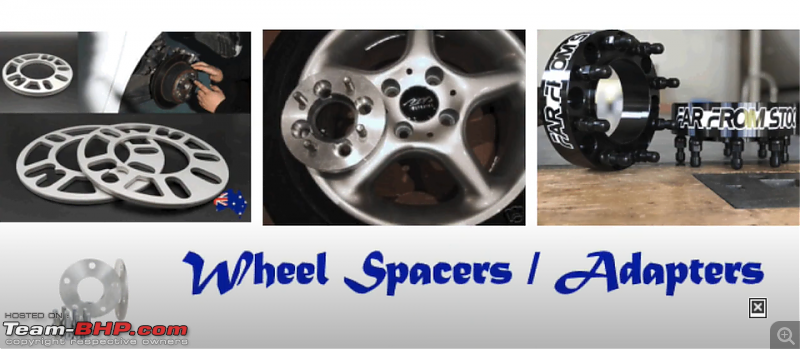
Wheel spacer is a metal plate placed between the alloy wheels and the bolts to push the alloy wheels outwards. Wheel spacers come in different quality. Some wheel spacers are quite loose and adds another moving part between the wheels leading to friction and it is bad for the car. If you are still going for it then go for reputed brands like Eibach.
Another option is Wheel Adaptors. Suppose you have a very rare bolt pattern for which alloy wheels are not available. Then one option is to go for Wheel Adapters which can fit into your current bolt pattern and change the bolt pattern/PCD to another one. For e.g. if your bolt pattern/PCD is 5x120, using wheel adapters you can change it to 4x100 which is a more common bolt pattern. It may be better than wheel spacers as it is bolted on but still adding another component is not recommended.
You need to consider other factors which as braking, turning radius etc. when you make the wheels sit wider using adapters or spacers.
I have started a Youtube channel called Techie's Hobbies where I discuss about my hobbies which are cars, watches, sneakers, fitness, gadgets etc.
Link to the channel:
https://www.youtube.com/channel/UCS_...1Qve__diJQkDng
Below is my youtube video where I have explained the same topics in Malayalam but English captions are available.
 (85)
Thanks
(85)
Thanks

 (11)
Thanks
(11)
Thanks
 (4)
Thanks
(4)
Thanks
 (5)
Thanks
(5)
Thanks
 (1)
Thanks
(1)
Thanks
 (3)
Thanks
(3)
Thanks
 (3)
Thanks
(3)
Thanks
 (4)
Thanks
(4)
Thanks
 (6)
Thanks
(6)
Thanks

 (5)
Thanks
(5)
Thanks


















